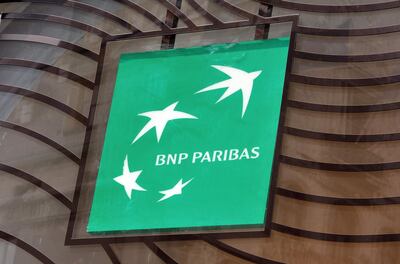After three decades spent covering consumer stocks at small and mid-size brokers, Sean McGowan called it a day in early 2016.
He was, by then, well accustomed to the ebb and flow of Wall Street job cuts and hiring sprees. But with a new regulation called Mifid II hanging over the industry, bringing with it an end to free research, he decided things were only going to get worse for analysts such as himself.
“Banks were already putting through massive reductions in headcount,” says Mr McGowan who has now reinvented himself as an investor relations specialist.
“With the Mifid changes, I said to myself: ‘The total number of seats in this business – at least in research – is going to continue going down.’
“People were either going to come to the same conclusion, or have it made for them. So I just figured, may as well leave now rather than find out the hard way.”
Many share Mr McGowan’s glum view about the impact of Mifid II, or the second version of the Markets in Financial Instruments Directive, on analyst jobs.
The new rule, which came into effect on January 3, was handed down by European regulators after years in the making. But as Mr McGowan's experience illustrates, it is very much a worldwide predicament.
Aimed at boosting transparency, it is turning the old pricing model on its head thanks to a process called “unbundling”, which forces banks to charge for research separately rather than lumping it in with trading commissions.
As the buy side becomes more discerning about what it pays for, spending on research is widely expected to decline, costing hundreds of analysts their jobs.
_______________
Read more:
[ Shares of London stock derivative brokers plummet on new harsh rules ]
Global big banks to lose up to 15% of revenue from trading stocks in Europe, Coalition says
_______________
The $4 billion that the top 10 major global investment banks currently spend on research annually is likely to fall by 30 per cent in the near term, due largely to Mifid II, the consultancy McKinsey projects.
There is an upside for a lucky few. Some asset managers, including Schroders, have said they intend to build up their in-house research teams to offset Mifid’s impact.
Vanguard Group, the world’s largest mutual fund company, also plans to rely more on internal analysis.
But as a whole, research departments are headed for tough times, warns Mr McGowan. “I don’t think it’s clear yet who’s going to be the winners and losers in all of this, but the whole pie is going to shrink.”
By the time Mr McGowan left the industry, brokerages were already busy drawing up elaborate pricing menus for everything from phone calls to research to face-to-face meetings.
"You could see how they were heading towards putting a price on everything," he says. "Analysts covering stocks were going to find it increasingly difficult to justify how they should be paid thousands of dollars per meeting, for example."
Changing the way brokerages can charge for research may be the most controversial aspect of the new regime. But the regulation, which has been billed as one of the biggest shake-ups since Margaret Thatcher’s “Big Bang” programme of UK deregulation in the 1980s, touches almost every area of securities trading carried out in the European Union, from marketing to dealing in shares and bonds.
The first phase of Mifid was introduced in 2007, and was much more limited in scope. Having failed to fully increase transparency in markets or protect investors, a second phase was proposed in the wake of the financial crisis.
Mifid II has a far wider reach than its predecessor, and applies to banks, brokers, asset managers, stock exchanges and a host of other financial institutions.
As part of the changes, firms will have to document transactions in far more detail than before. There are new rules for “best execution”, which mean dealers must be able to show they made every effort to get the best possible price for a client.
The rules will also cut down on the amount of off-exchange trading, to make markets more transparent.
“It essentially represents a better deal for the end investor,” says Mark Pumfrey, head of equity trading venue Liquidnet Emea.
“Asset managers are now in a position to decide what they want to consume and at what price, which will enable portfolio managers to focus on value for money and quality of service – for both research and execution.”
Gina Miller, who is a co-founder of wealth manager SCM Direct and is known for her anti-Brexit campaigning, says that if the financial industry had “put its house in order” after the credit crunch, the new rules would not have been needed at all.

“Very little has actually changed since the financial crisis in 2008-09,” says Ms Miller. “Investors are still being denied very basic consumer rights and consumer protections that are being afforded to them in any other sector.”
Ms Miller runs the campaign group True and Fair, which has been calling for more transparency in the investment sphere for several years.
She is now considering suing the UK’s Financial Conduct Authority (FCA) over what she sees as its lenient approach to implementing Mifid II, as she believes a majority of companies are still not complying with the rules.
"We are appalled – we can only find a handful of regulated firms who are actually complying [with the new rules]", she says.
A number of firms have called for more time to make the changes, but Ms Miller has no sympathy for them. “We are talking four years,” she says. “This didn’t come out of the blue, overnight, and suddenly the industry had to respond. Firms have had four years to implement Mifid.”
The FCA, for its part, says it is “pleased with the progress firms have made” in adapting to the new rules. Market players are expected to be able to show that they have made every effort to be compliant, with those that fall short potentially facing a range of penalties, including fines and bans.
A spokesman from the European Securities and Markets Authority adds that the roll-out has been "relatively smooth", but says there are "a number of issues that still need to be addressed".
One of those issues is around trading caps. On January 9, Esma said that because of insufficient information, it had been forced to delay until March the publication of data meant to specify which stocks will be subject to limits on trading in “dark pools”, meaning not on public exchanges.
That will result in a further delay to a core element of the new rules, which have already been put back a year.
“All the financial services industry wants is certainty,” says Gerard Walsh, who heads up equities business development for Northern Trust Capital Markets in London. “But Mifid II has delivered a lot of uncertainty.” “Adaptation to the rules will continue well into 2018,” he adds.
For smaller brokers, the process is expected to be particularly painful. If larger firms start slashing fees for their output, smaller brokers will be unable to compete. This could force them to consolidate to survive. "I see challenging times ahead for small to medium brokers," Mr Walsh says. "It could well be that they end up acquiring one another to put enough shelf space on the floor, as it were."
Then there is the research side. Big companies are often covered by as many as 30 analysts all giving a similar opinion on the stock. That has led to arguments that a lot of research does not really add much value, and that the cost of this research should not be passed on to the clients of the fund manager.
“There’s absolutely no shortage of research in the world,” Mr Walsh says. “Tens of thousands of pieces of paper are produced every day.
“But what there is a shortage of is good ideas that will make investors money,” he says.
“I think one of the impacts of Mifid II will be to put more emphasis on those research houses that create great ideas, and who deliver them to investors who are keen to put them to work.”
Mifid will “force firms to differentiate or die”, Mr Pumfrey says.
“In a competitive environment, firms with a ‘me too’ or average product will struggle to deal with the increased transparency that this regulation has forced on the industry as a whole.”
“But quality research will survive,” he says. “Mifid II will ensure the industry focuses on quality over quantity.”
Although Mifid II currently only applies in the EU, many firms are considering whether to implement the rulebook globally to make life easier, and business more efficient.
France’s BNP Paribas Asset Management, for instance, has said it plans to follow the principles worldwide, on the basis that it would be “extremely complex” to distinguish between portfolios covered by the new EU rules and others.

Mr Walsh says that he had also received lots of questions about the new rules during his recent trip to the Arabian Gulf.
“In both Saudi Arabia and in Abu Dhabi, Mifid II has been a topic of conversation in our meetings,” he says. “People down here are thinking about it, and asking if they should start putting aside a budget for research too.”
According to Mr Pumfrey, the uptake of Mifid II will only accelerate. “Other G20 regulators are looking at implementing elements of Mifid II, with Hong Kong and Singapore adapting investor protection rules; as well as Finra in the US, looking at implementing stronger best-execution rules.”
As for any firms hoping that the Brexit vote means they will not have to comply with the legislation after the UK leaves the EU, they can think again, says Ms Miller.
“Some firms have said they’re not taking Mifid II that seriously because we’re going to leave [the EU] with no deal, and that they therefore don’t have to implement the legislation.
“But that’s not true because if we lose passporting but we have equivalence … we would have to stay fully aligned with all EU legislation.”
Passporting allows UK financial service providers to offer their services to an EU market of some 500 million consumers and 22 million businesses. Last November, Michel Barnier, the EU’s chief Brexit negotiator, said the legal consequence of Brexit “is that the UK financial service providers lose their EU passport”.
Others have warned that in the wake of Brexit, London’s appeal may be further reduced as Mifid II makes the city a more complicated and expensive place for overseas investment managers to do business.
“New York, Boston, Hong Kong and Singapore will become more attractive,” says Dechert partner Peter Astleford.
For Mr Walsh, the regulators still have some questions to answer.
“Every change in business brings the law of unintended consequences into play,” he says. “There’s a constant tension whereby regulators put in place principles, but we work on the actual rules.
“So at some stage, maybe in 18 months to two years, the regulators should answer the question: ‘What were we trying to achieve with Mifid, and have we achieved it?’
“That’s the kind of question I’d love to pose to regulators.”





